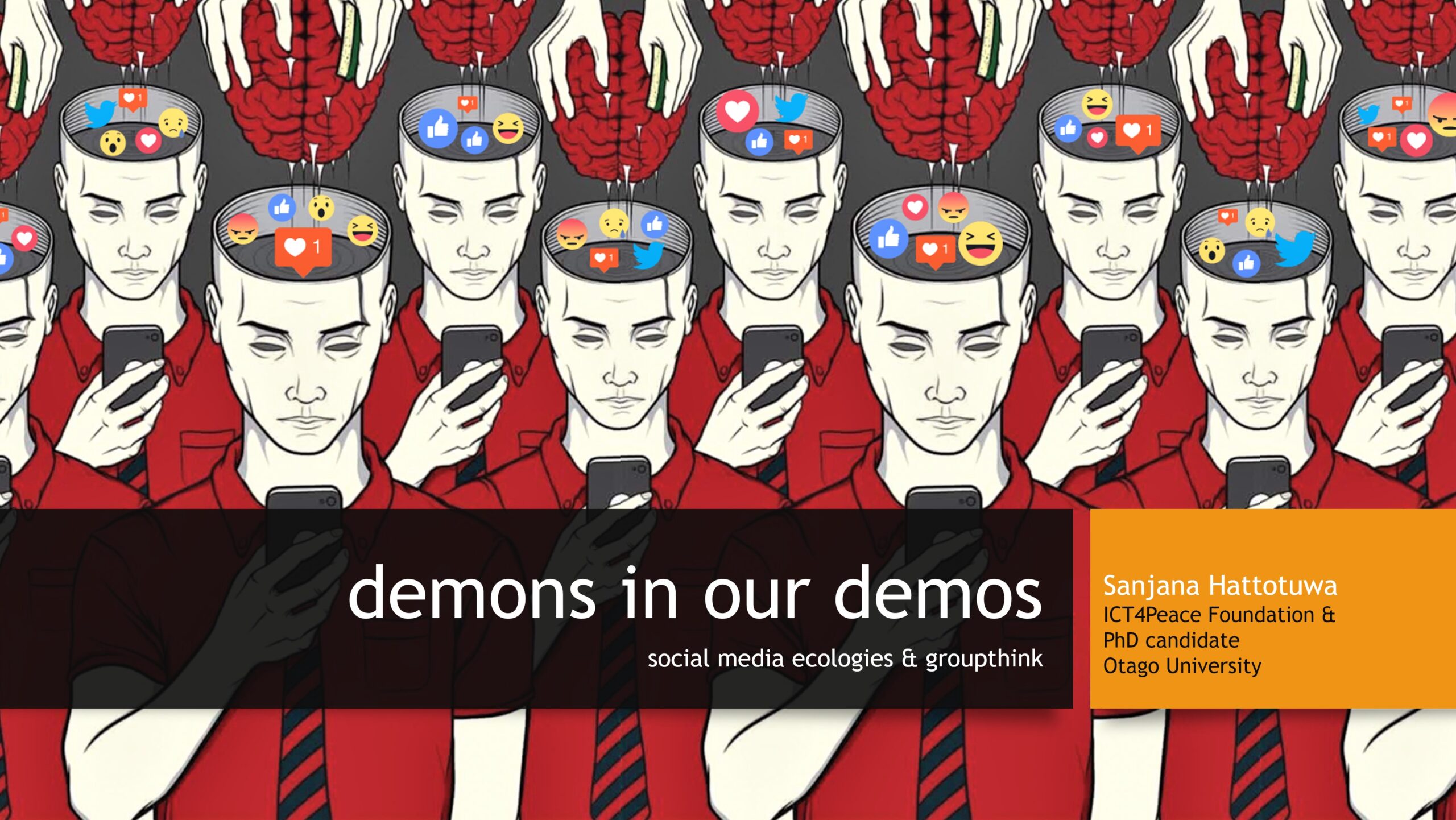Sanjana Hattotuwa, Special Advisor at the ICT4Peace Foundation, was invited by Transparency International New Zealand to lead a conversation on Groupthink as part of the Leadership Week of Victoria University, Wellington. PDF of event description here.
Are we collectively ruining democracy? Polarisation of thought and belief seems to be on the increase particularly in the online environment. Where people who think similarly move (or are pushed) towards more fixed or extreme views, it makes it harder for people to express opinions or suggest new ideas. How can we challenge it? This is an opportunity to talk about how groupthink is affecting our lives, and to discuss positive alternatives.
Download the presentation as a PDF here.
Anchored to Sanjana’s on-going doctoral research at the University of Otago, New Zealand, he focussed on how (social) media’s entrenchment and expansion, far removed from early promise and hope, now seeded and spread toxicity and compliance. Using the example of President Gotabaya Rajapaksa in Sri Lanka, as well as the anti-Muslim riots that rocked the country in March 2018, he took a broader view of the role, reach and relevance of social media’s ability to control and contain the public imagination. Sanjana noted that we are all hostage to group norms, and flagged Linda Stone’s enduringly vital capture of our relationship with technology she called ‘continuous partial attention‘. Noting that groupthink was normalised to a degree that to even question it could result in violent pushback (especially in Sri Lanka), he ended by outlining how citizens, governments and social media companies could and should take steps to address so much of what’s wrong in the media and political landscape today.
Kindly see the Video of the Zoom call embedded below. Sanjana’s presentation starts at 5:30 minutes of the recording).

